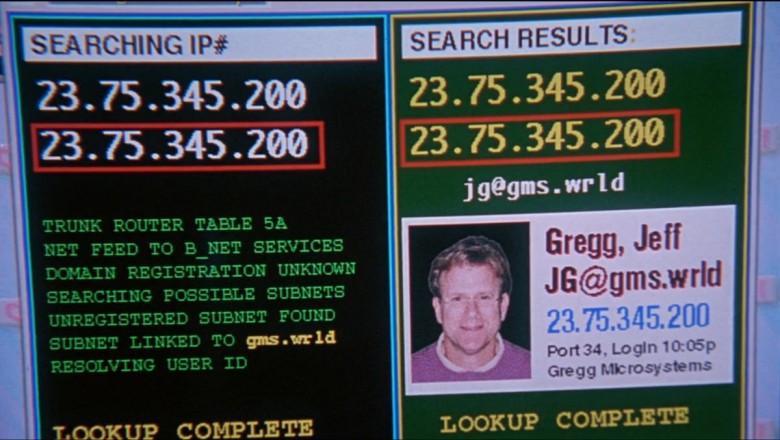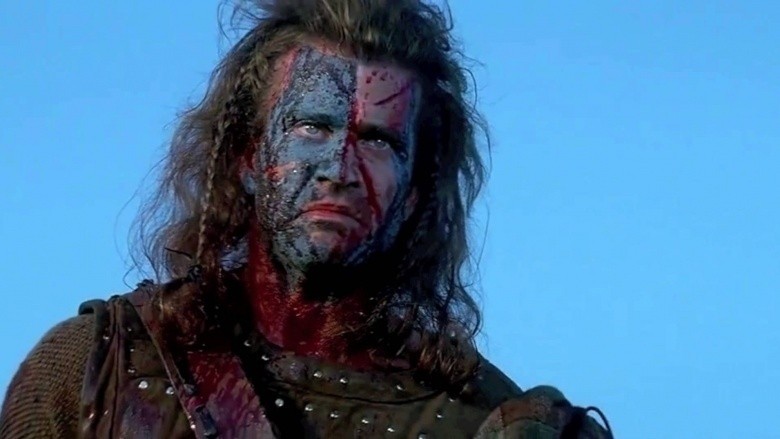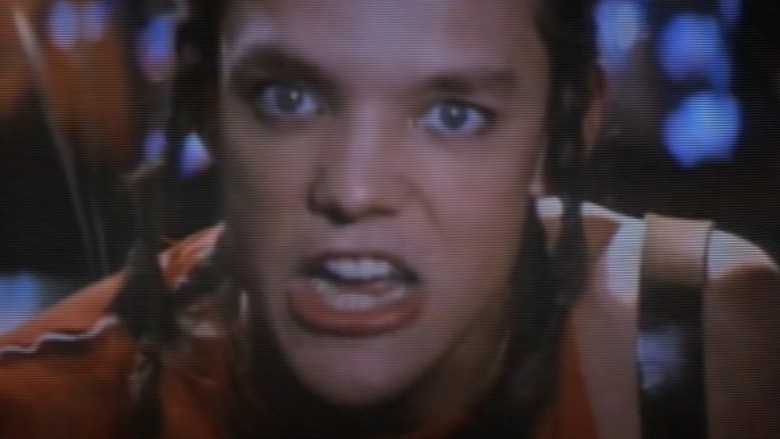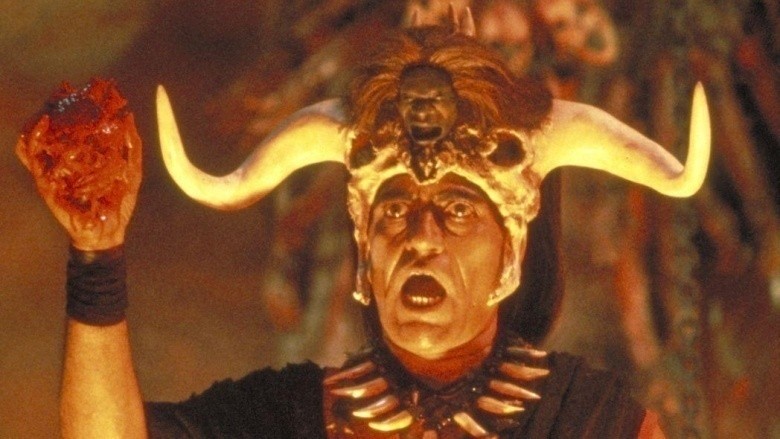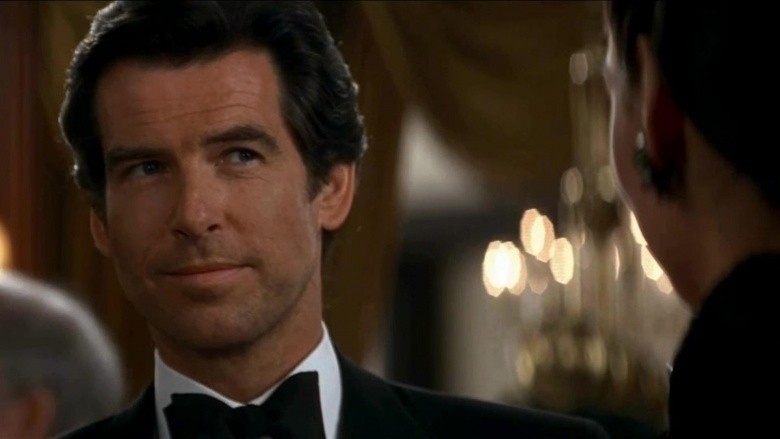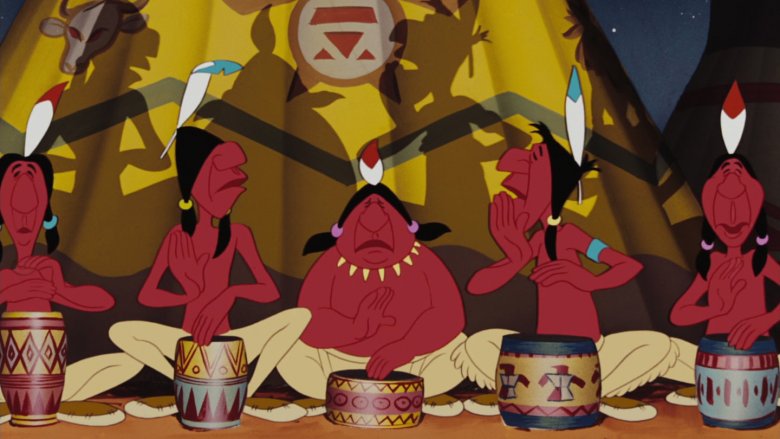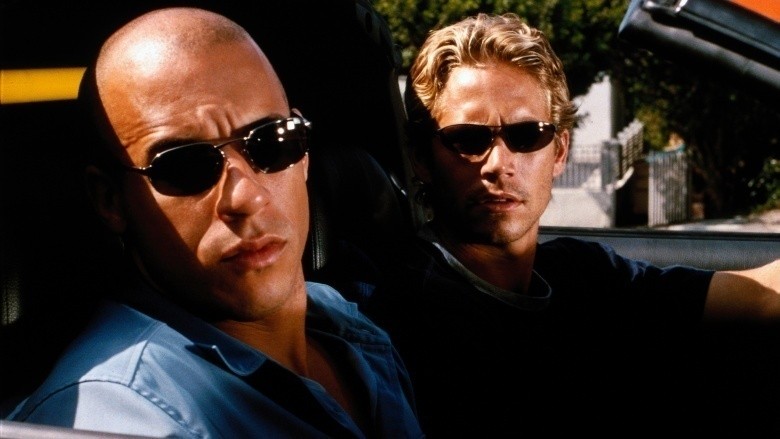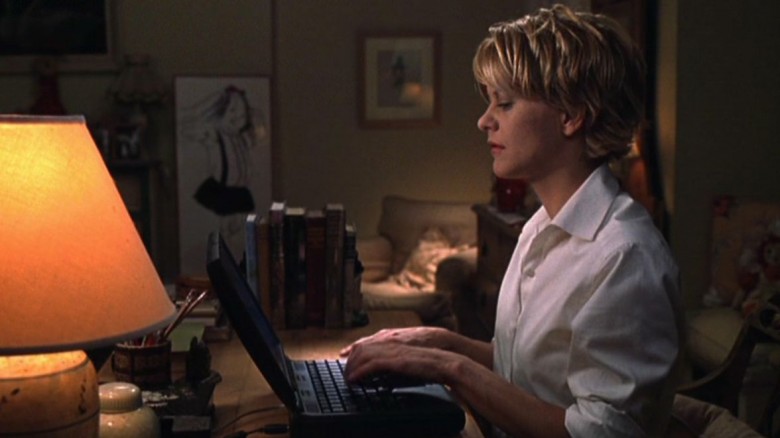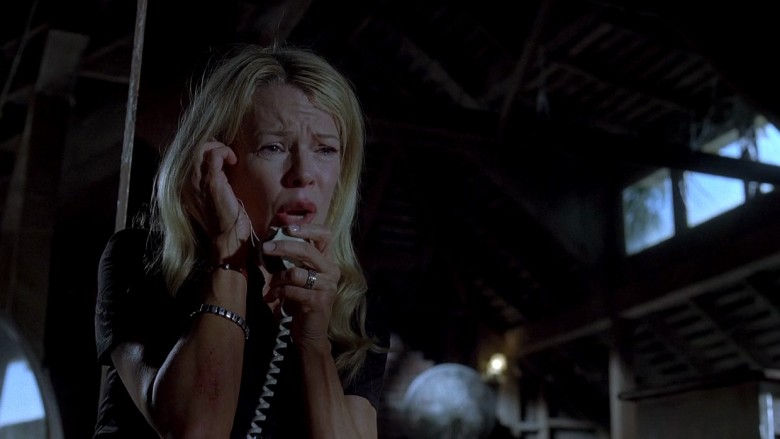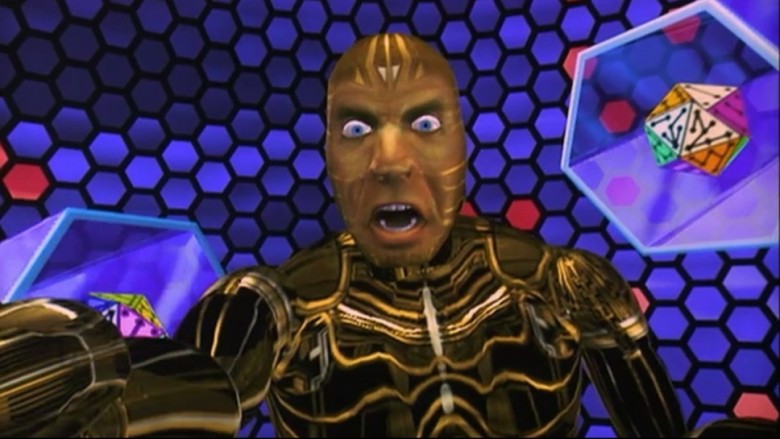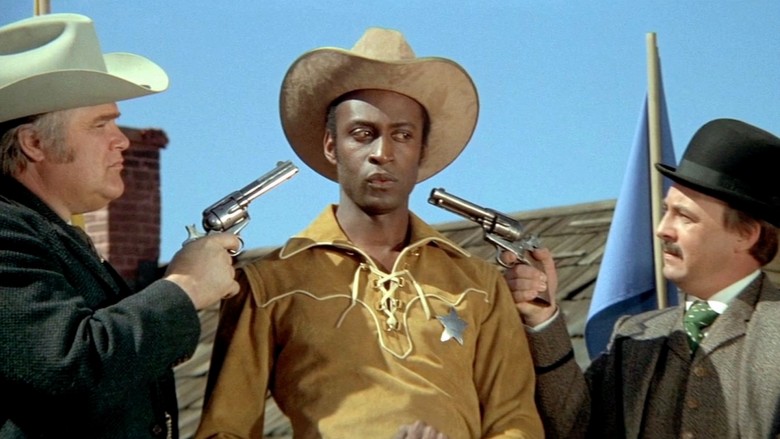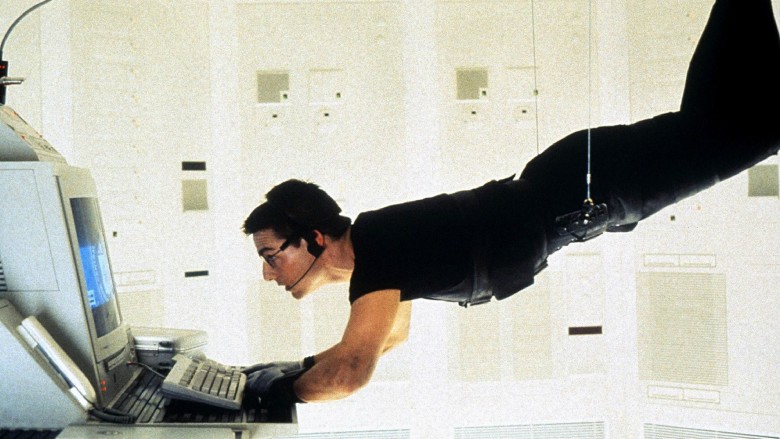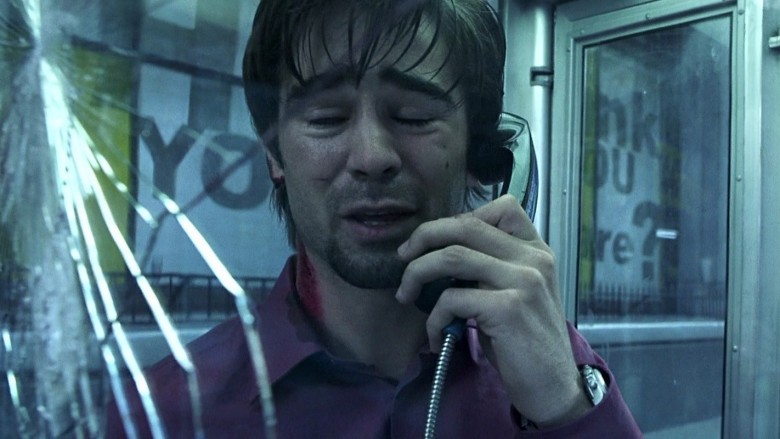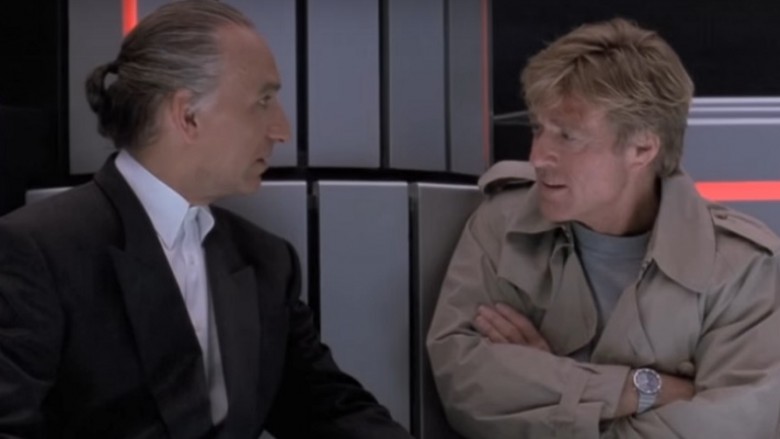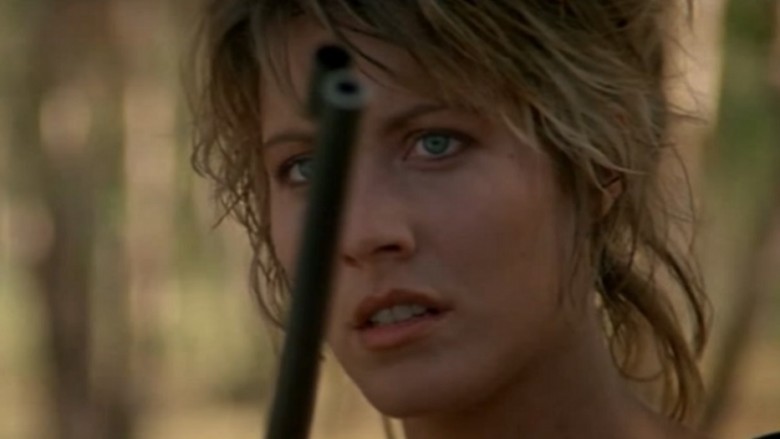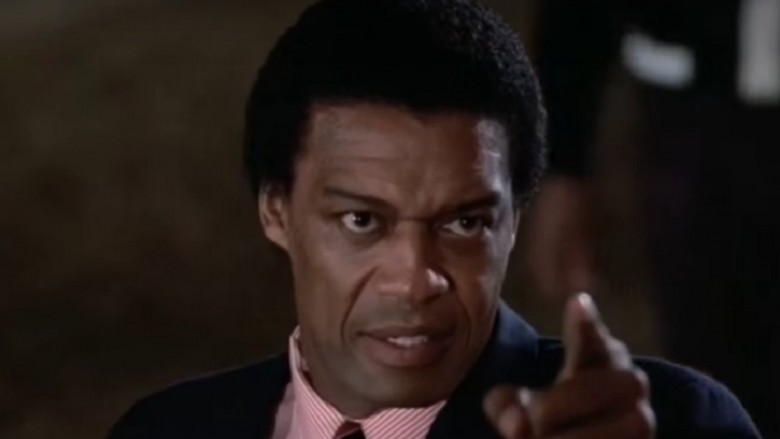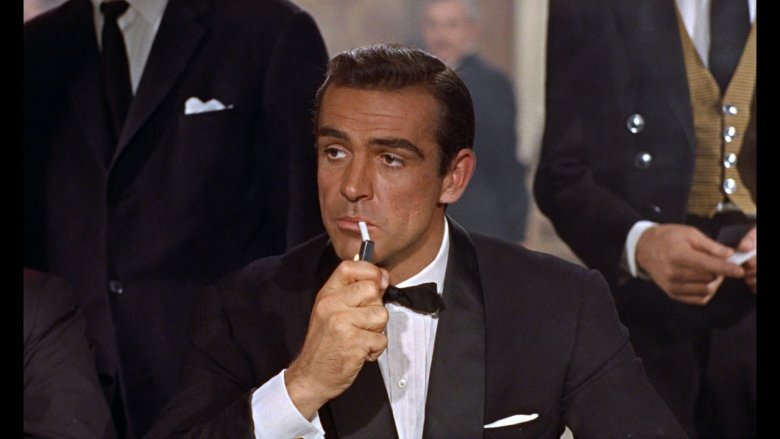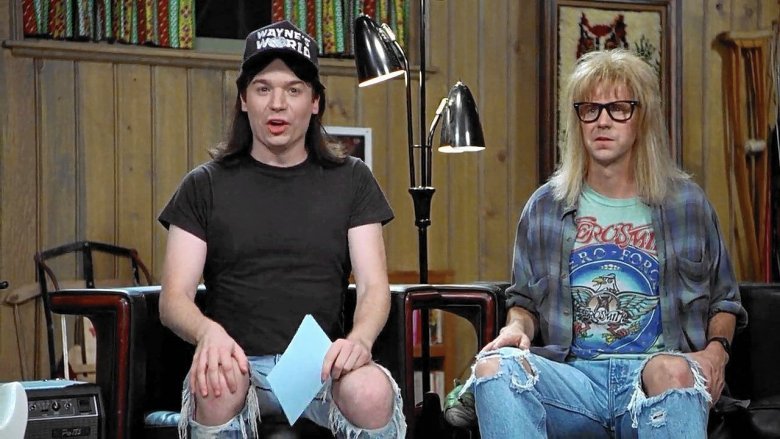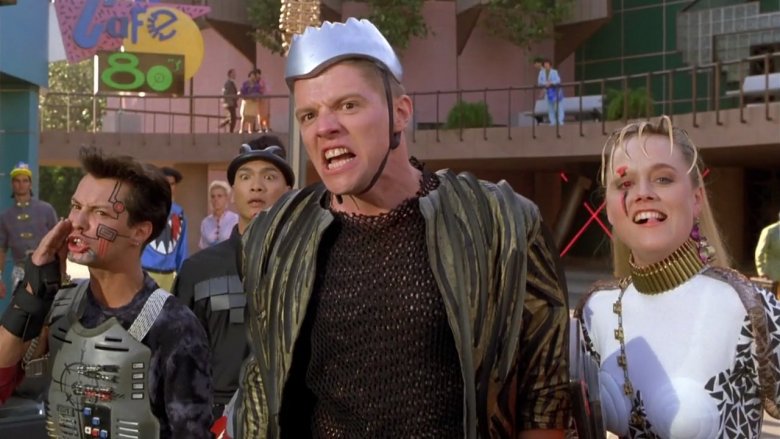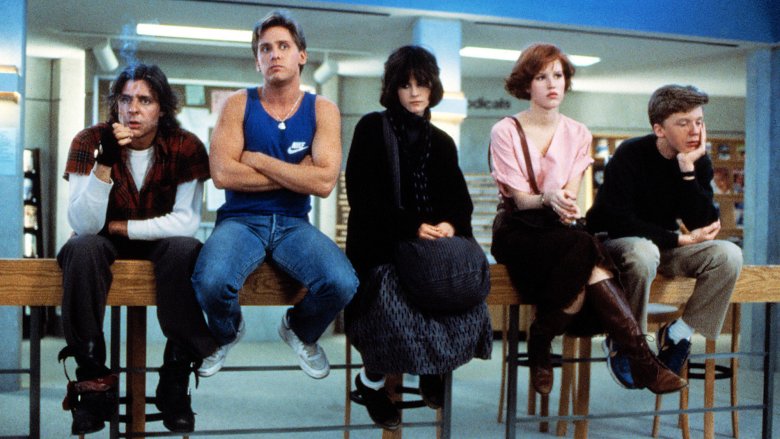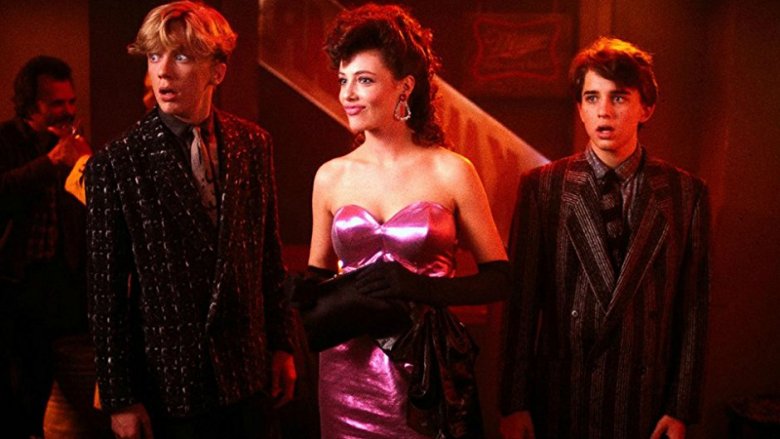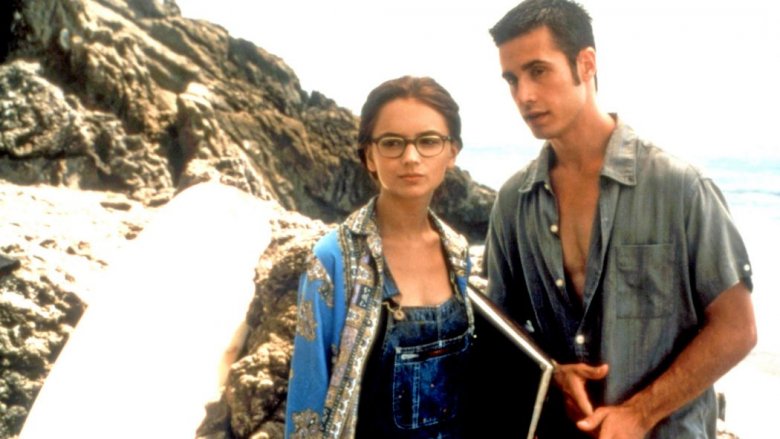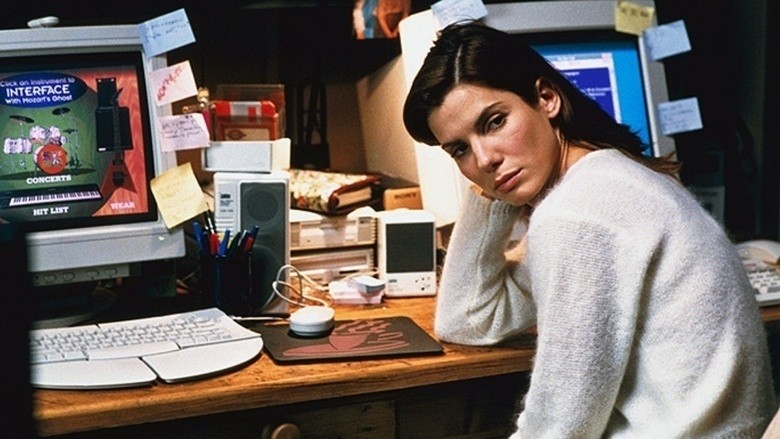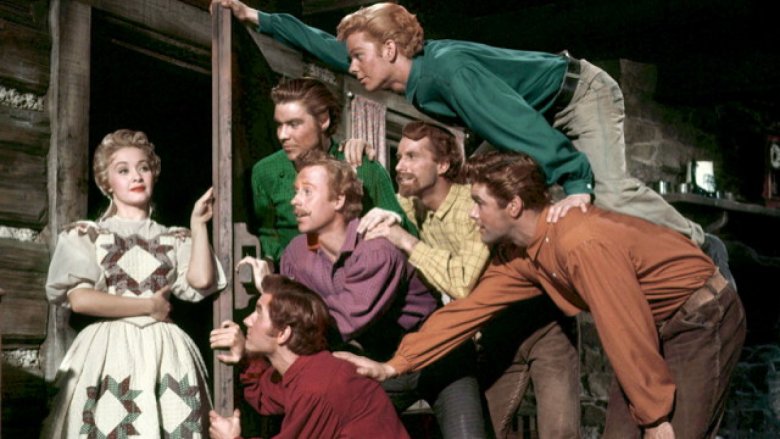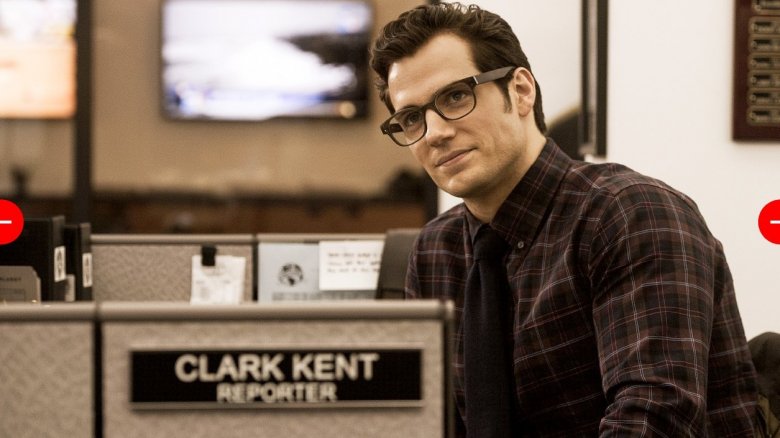Great Films That Have Not Aged Well
Many great films hold up over time, no matter how long it's been since they debuted. Other movies ... not so much. They made a splash upon their initial release, but their luster faded fast. Movies like the following, while still great movies, now look more outdated than your grandfather pretending he understands the hip-hop. Good try, Gramps.
Braveheart (1995)
Braveheart is inarguably a great film, possibly one of the greatest, most epic movies ever. It's a wonderful throwback to those precious golden years when Mel Gibson was a fun kind of crazy, and not the kind you shamefully pretend doesn't exist anymore. You know what else it is? A reminder that movies, even exquisitely filmed ones like Braveheart, can be harmed by the smallest, stupidest mistakes nowadays.
According to this video, there are at least three seemingly minor, but honestly absurd, production errors that, once you see them, you can't see the movie the same way again. There's a dude sporting a baseball hat in the background of one scene. A humongous battle scene takes a backseat to a car just milling about in the background. And yet another battle scene features one of William Wallace's men, front-and-center, berserker rage at Mach 20, wielding a wobbly, plastic axe the director's intern probably found at Party City that morning.
Braveheart came from a simpler time, when you could get away with dumb goofs like this and still proudly showcase your award-winning masterpiece. But now, we live in the Age of the Internet Nitpicker. People will find every single stupid mistake a movie made, even for a fraction of a frame, and when they do, they will pounce on it. If a movie isn't 100 percent perfect, it's a travesty. So no way would a this-millennium Braveheart have made it through production with some guy in a ball cap chilling nearby, no way would rubber weapons go anywhere near an actor's hands, and they'd sooner blow up a car than let one make it into their 13th-century period piece. If they did ... well ... you might not be able to take away Wallace's freedom, but you sure could take away his Oscar.
Hackers (1995)
Hackers is Windows 95 cyberculture as seen by clueless Hollywood, a film about super-hot, super-genius, teenage uber-hackers, who hack each other for lulz just as effortlessly as they hack evil corporations for seriouzzez. If 4Chan had existed in 1995, these kids would be their Mary Sues.
This movie clearly knows squat about computer culture and hacking, making the activity cartoonishly sexy and exciting for no real reason other than "that's what Hollywood does with everything." Problem is, it just looks ignorant here. You know that CSI scene where two people furiously type on the same damn keyboard, while billions of images and letters flash on-screen at light speed, and some guy simply unplugs the computer to end the hack, and that's supposed to be how computers work? Picture that, only dumber. That's Hackers.
Then there's the tech itself, virtually every bit of which seem quaint nowadays. (One character marvels at a laptop with a 28.8kbps modem — you snag one of those babies today, have fun waiting 20 minutes to download a single Salt n' Pepa song off iTunes.) Yes, it's difficult to tell an evergreen story about technology — try watching a movie with flip-phones without commenting "holy crap, flip-phones?" — but your chances of success increase magnificently if your characters don't act like something you know full well will go dodo in a year is the next Skynet.
And yet somehow, it's the unlikable characters who may have aged worst of all. It's obnoxious bad guys against uncool bad guys — one kid gets arrested for hacking at age 11, is sentenced to not touch a computer until he's 18, and the second that happens, he starts hacking again. If that's not a sociopath in the making, it's real close. The kids insist "their crime is curiosity," which is only slightly better than a bad boyfriend who thinks his biggest weakness is that he cares too much. The film has the kids fight an evil conglomerate simply so they seem even a trifle likeable.
You'll have fun with this cheesy popcorn muncher, for sure, as long as you don't expect to root for anybody. Also, you'll marvel at the tech, but not like how the movie wanted you to.
Indiana Jones and the Temple of Doom (1984)
We love the whip and fedora as much as anyone. But Indiana Jones and the Temple of Doom simply wouldn't work today, and not just because Harrison Ford is old enough to wheeze and nap his way through the entire Kessel Run. It's not even because a film theoretically meant for children is, as we've explained before, darker than a hundred of the darkest darknesses — that's totally cool today, unless you're Superman.
No, the real issue with this otherwise great film is the reel-to-reel racism toward anyone who isn't pale as Indy. He's obviously not going around slaughtering innocents because their skin is darker than his — he is the good guy, after all — but the film's casual attitude toward racial stereotypes is ... unsettling at best. Its approach to Indian culture is beyond paranoid, and Short Round isn't just a cute little Asian kid stuck in there for comic relief — he's a cute little Asian kid who can barely speak Engrish, and who gets saddled with dopey lines like "okey dokey, Dr. Jones, hold on to your potatoes," not because it works for the plot or is a particularly funny line, but because it fits his "wacky and not-too-smart foreign kid" character to a sad, sad T.
Even if the sum total of the movie is still pretty awesome, there's a lot about Temple of Doom that, today, any half-aware screenwriter would delete two seconds after writing it while sleep-deprived at 4 AM. Even adding in a subplot where it's revealed Dr. Jones really, really LOVES potatoes wouldn't help any. Any further Indy-ventures should back away slowly from racial stereotypes and casual racism, and focus solely on fighting the real evils of the world: anybody who wants to make Jones do his day job.
GoldenEye (1995)
Ask any James Bond fans about the movies and they'll have their favorites — some might even fight you over them. But as Bond movies go, Goldeneye is still in at least the top ten, far and away the best of the Brosnan four. Seen in its own time as a return to form, it not only features Brosnan's best performance, but also very memorable villains, a clear plot, and great action. But there are still a couple of things about the movie that have aged terribly, and are bound to look worse as time goes on.
For one, there's the corny, mushy, electronic score by Eric Serra, which sounds like it came from a bad Sonic the Hedgehog game. You have to hear it to believe it — it's hard to believe now that it was ever deemed worthy of the film. The other details are more inevitable, such as outdated tech. This particularly impacts what was once a badass scene, as our heroine Natalia enters a computer store with a specific list of demands. It's now dated for all the wrong reasons:
Natalia: Are these all you have?
Manager: How many do you want?
Natalia: Twenty-four for the American school, 11 for the Swedish, IBM compatible with 500 meg hard drives and 14.4 modems.
Manager: You pay dollars?
Natalia: Of course.
Year by year, those words mean less and less (right down to "pay with dollars." it's plastic or nothing now.) At least the tank scene still owns the night.
Peter Pan (1953)
Peter Pan seems like such a timelessly innocent movie — Pan and the Lost Boys never grow up, spending their days having fun, relaxing, and battling swashbuckling pirates like many a child dreams of. How could that ever be outdated and bad? Simple — how about the Indians?
The Indians (or Injuns as everyone calls them) in Disney's Pan are, to put it politely, totally racist caricatures. They're violent savages who call themselves Injuns, speak Stereotypical Indian ("How, me heap Injun Joe") and spit ear-splitting war whoops as frequently as a teenager utters "like." Their skin is bright red from head-to-toe and aside from Tiger Lily, they all look completely ugly and ridiculous. The Lost Boys and the Darlings hunt them like animals, singing truly offensive lines like this one from "Follow the Leader": "We're out to fight the Injuns / because he told us so." Sure, it's a kids' movie where people are off to beat down a minority, but at least they were just following orders.
The Injuns themselves have a song called "What Made The Red Man Red?" complete with nonsense words and a ridiculous origin story about how the first Injun prince kissed a girl, blushed, and somehow all Injuns have red skin now. You can see why many Pan fans prefer to focus on the pirate stuff versus the Native American stuff.
The Fast and the Furious (2001)
Friends, we've been down a long road with Dominic Toretto and the family. And we are a family at this point — we the viewers, good ol' Brian (R.I.P.), Letty and Mia, Tej, Han Lue, and The Rock (it doesn't MATTER what his character name is, he's forever The Rock to us). Fifteen years with these beautiful rogues. It's crazy to imagine how long it's been ... which makes it pretty jarring to go back to the first film in the series, released at the dawn of the new millennium. It was ... different! And not in a very good way, either.
Aside from the crazy low stakes of the plot (a street racer hijacks a truck full of explosives — at no point do we see any signs suggesting we'll eventually just be throwing cars off planes because machismo told us to), the tech is — to put it lightly — wack. Floppy drives in the cars? Look at these ridiculous setups. Someone's ride even has a PlayStation 2, which at this point might as well be a Colecovision, in terms of outdated gamingness.
The first movie is basically a souped-up Donnie Brasco, but the recent Fast and Furious installments are about as strong — and arguably even cooler — than most anything Marvel and DC throw our way. Their missions are ridiculous, bombastic, and totally international now, which makes watching their dated, local beginnings kinda weird. It makes for a strange binge marathon, especially when you realize the most outdated, ludicrous part of the whole film: The Rock's not on it. That's not just outdated — that's empty.
You've Got Mail (1998)
The trailer for You've Got Mail begins with Meg Ryan's character logging onto the internet ... via America Online. If that doesn't scream "dated" enough for you, peep this: she gushes about how excited she is to hear the antiquated notification, "you've got mail." Yes, she's excited to get email. Why? Because once upon a time, that was new and exciting. Nowadays, you're only excited to get an email if it isn't a bill, spam, a Nigerian prince, or some stupid newsletter from a site you signed up for five years ago but are too lazy to unsubscribe from.
The movie takes place during a time when people were more likely to engage each other through AOL Instant Messenger (AIM), because social media sites like Twitter or Facebook were more than a decade away from even existing. Nowadays, if you're on AIM, you either lost a bet, or you're this generation's answer to the mom from that Bowling For Soup song about not letting go of 1985.
More importantly, the movie's central concept hinges on two perfect strangers falling in love without ever meeting in person, seeing each other's face, or learning one single thing about each other. Today, people routinely dig up background information about online chat partners long before that first awkward in-person encounter. People are simply way, way more likely than ever to hire a private investigator to check out that guy they're meeting for McGriddles and coffee on Friday — charming Hanks or no charming Hanks, Meg Ryan's adorable naivete just comes across as needlessly risky these days.
Cellular (2004)
Despite only being made in 2004, Cellular is already super-dated, thanks to the backbone of the plot: landline phone usage. Yeah, remember those? It was like a phone ... but attached to the wall. You couldn't walk more than a foot or two away from it, you couldn't text, and worst of all, no Clash of Clans. All they had was superior reception and crystal-clear communication. Hardly seems worth it.
As Forbes reports, landline phones were still fairly common at the time of Cellular's theatrical release. Today, however, the majority of American households don't use them at all, and the number of people who still have them is plummeting fast. If a house has a landline phone, chances are they only keep it around so the cat has a dangly cord to destroy that isn't important.
Sure, Cellular played up cellular technology — it was 2004, so it wasn't exactly some crazy Jetsons theory or anything — but it still rested on the idea that the movie's kidnapped heroine would have a working, active landline that she could finagle and use to communicate with the outside world. As we move toward a future where landline phones are about as relevant as the Pony Express, Cellular becomes harder and harder to see as anything but antiquated.
All this, by the way, is without addressing the starring role that the Nokia 6600 played in the film. In case you don't remember what the Nokia 6600 looked like, it was this thing: a clunky, chunky, proto-smartphone with a tiny screen, a grainy crap camera, no wi-fi, no lights, no music, just anger. You can see why nobody uses it anymore. Though the Finnish phone was certainly a hit back in the day, now we have iPhones, Androids, and cell reception physically embedded in our brains by 2037 (probably). Cellular could well have the tightest, most gripping plot of all time, but we're too busy laughing at what might as well be tech from the Stone Age to notice.
The Lawnmower Man (1992)
A riff on Flowers For Algernon by way of Stephen King, Lawnmower Man tells the story of a man-child given genius intellect and psychic powers through virtual reality-based experimentation. Ah, OK. Do you have one of those PlayStation VRs? Do you play, say, Batman: Arkham VR on it? Do you feel like a Bruce Wayne-esque genius when you wear one? Or do you just feel like a big ol' galoot who will probably run into a wall or trip over the dog and break your face because chasing down Penguin and Joker while blind to the real world is way harder than you thought?
But it's easy (and fun!) to criticize a sci-fi thriller that asks the viewer to believe playing specialized VR can transform people with below-average intellect into cybernetic supervillains, but that isn't even the biggest problem with the movie. No what ultimately fails Lawnmower Man is the movie's CGI, cheesier than an Italian restaurant and cornier than a nu-metal reunion show. It might have looked futuristic for ... a few minutes, but it's nothing but laughable today. Maybe King should've given him actual lawnmower powers — then he'd be relevant as long as grass still exists.
Like just about any other movie that tried to tell a story with ultramodern technology, Lawnmower Man went from cutting-edge cool to dated, MST3K-worthy relic in less time than it took to limp from the cineplex to the home video market. Also hilariously dated: the movie's ending, which shows the not-dead villain ringing the landline phones of people all over the world. If he tried that today, all he'd get are old people who think he's the pizza guy and they'd like a large pepperoni with extra mushrooms, please.
Blazing Saddles (1974)
Hoo boy. Yes, Blazing Saddles is an unabashed classic, but name one thing they did that you could get away with today. The bean scene, maybe? While 90 minutes of farting cowboys does sound like a fun night out at the cineplex, we struggle to think of much else this movie could do these days, not without massive amounts of controversy and a few dozen boycotts along the way.
Yes, the movie's core message is one of overcoming prejudice to work together against a dangerous enemy. And Mel Brooks is never not timely. But the route they take to get from opening theme to closing credits is bumpy, to say the least. There are racial epithets galore, stereotypical jokes about black men's in-the-pants endowment ("We're getting pwotested by the NAACP? IT'S TWOO, IT'S TWOO!"), a "redface" portrayal of native Americans that only barely survives today in the sports world, never mind the real world, homophobic humor ("Kansas City f******," anyone?), and plenty of casual sexism sprinkled in. Even Brooks' version of censorship — "The sheriff is a ni-*BONG*" makes it crystal clear what he's going for, and the characters actually using the n-word after negates that part anyway.
Is Blazing Saddles still a ridiculously funny movie? Absolutely. Is it actually mean and bigoted? Not at all. Richard Pryor worked on the script, so it's easy to see these jokes as social commentary rather than mean-spirited attacks. But don't go pretending anyone could actually make this film work these days — it would be outraged out of theaters and into $1 clearance bins quicker than you can say, "where the white women at?"
Now will someone please make that Farting Cowboys movie?
Mission: Impossible (1996)
Perhaps the one remaining clue that Tom Cruise is a human actor, and not an avatar of one of Xenu's tentacles, the Mission: Impossible series has been very, very good to Cruise, and proof that just because a movie's based on an old TV show, doesn't mean it has to suck.
However, if you were to go back and watch the original, 2002 M:I, you'd likely find it ... adorable. That's because our 2002 reintroduction to Ethan Hunt and DUH-DUH-duhDAHduhduh-duh-dah-DUH has more outdated technology than a small-town flea market. And because the heroes of this film are these super-hip, super-savvy secret agents, with their fingers on every button made in the past year or so, the hottest, coolest, most blow-your-mind technology is everywhere.
Mr. Phelps gets his briefing via casette. The computer used to store top-secret CIA data is one of those gigantic desktops with the heavy badonkadonk that made it near-impossible to lug around without hitting at least one relative in the face. They access the internet via modem, by typing "internet access" into something called the "Internet Link." You probably don't remember doing that because nobody did. This got them onto Netscape. They then saved this all-important data on an old floppy disc, one with a whopping 230 MB of space to spare. You know what's 230 MB these days? The first three minutes of Uncle Grandpa.
Oh, and did we mention these computers have trackballs? Because they do. Ah, the wonderful, super-brief period when we thought trackballs were the final stage of technological evolution. We thought that right after defiantly declaring video game would never look or sound better than they did on the Nintendo 64.
Point being, the only thing about Mission: Impossible that works today is it's cool, thrilling spy story, with lots of explosions, tense moments, and so much Hollywood Sexy. That's probably why they give us a new M:I every few years. That way, we get the cool stuff and don't have to wince through all that ancient tech anymore. And thank God, because Rogue Nation's gonna look STUPID in about five years.
Phone Booth (2002)
The title alone might confuse the young bucks reading this. A booth, with a phone? Seems pointless — we have pockets, right? Just Google "phone booths," kids, and be amused.
That said, the idea of a movie taking place entirely in a phone booth might be the most unmodern thing we could come up with today. At least a movie taking place entirely next to a telegraph machine would be amusingly quaint, almost satirical. But Phone Booth is dead-serious — the story of Jack Bauer going rogue, grabbing a sniper rifle, and threatening to kill Colin Farrell if he dares step outside the booth he was using to discreetly call his mistress.
Here's the funny thing — even in 2002, this concept was outdated. Phone booths were rapidly becoming ancient history. The movie makes it clear that this one phone booth is the only remaining one in New York City. If you go to real NYC and count the phone booths, you'll find the film's not too far off. But 15 years later, this already-dated idea is positively dinosauric. We get it — he's using the phone booth so his wife couldn't trace the calls he's making to his sidepiece. But today? You don't need to do that — smartphones make it quite easy to cheat right from there. Use a dummy account on social media, then sign back into your real one. Text in code, then delete the text. Hell, go to the Apple store and shoot your lover a message from some display tablets — they're online. Point being, you don't need a phone booth, especially one manned by a gun-toting psychopath who likely would've been exposed by Reddit hours of his first kill anyway. So there's that too.
And not for nothing, but Sutherland's motives would be scrutinized to death by the online community, and they'd probably conclude the guy makes no sense. He trapped a pedophile and a major stock market crook in the booth before killing them, and now he's going after a dude cheating on his wife? What's next, jaywalkers? If this film came out today, 24 wouldn't be the name of Sutherland's meal ticket — it would be the number of minutes before net-addicted nitpickers labeled this film, and its weird, almost alien landline box, a laughingstock.
Sneakers (1992)
Sneakers is one of the most awesome caper comedies ever, and if you're a little thrown off by having never heard of it, just take a look at the unbelievable cast that signed on to this thing: Robert Redford, Ben Kingsley, Sidney Poitier, Dan Aykroyd, and River Phoenix in one of his last roles. The screenplay is witty and whip-smart, the cast has amazing chemistry, and it has a really great story to boot—as long as you can ignore all of the ridiculously outdated tech that the plot constantly hangs its hat on.
The story involves a "little black box" that can decrypt anything, and we know we're in trouble right off the bat when the mathematician who created it sneakily stashes it in his telephone answering machine. Another major plot point has a team of hackers setting up a mark with a date through a "computer dating service" that might have seemed a little passé even in 1992. Said mark works on "cutting-edge" voice recognition tech that would be no problem for a smartphone of several generations ago.
These are just a few examples, and while the dinosaur tech flies fast and furious, its portrayal was not inaccurate for its time. In fact, the film served as a source of inspiration for many up-and-coming techies and has also gotten some renewed attention in recent years for its scarily prescient attitude toward government surveillance. Also, Aykroyd's character is a believer in all kinds of wacky conspiracy theories, so they kind of got that right, too!
Crocodile Dundee (1986)
Anybody who remembers the '80s remembers Paul Hogan, even if they don't immediately recognize the name. That's because he might as well have just changed his name to Crocodile Dundee, because it's not like he'll ever be associated with anything else other than maybe those Foster's beer commercials. The fish-out-of-water romantic comedy Crocodile Dundee, in which Hogan's uncivilized brute comes to New York to teach local hoodlums what is and isn't a knife, was the second-highest grossing film of 1986 behind Top Gun, and it really has aged about as well.
For one thing, the whole lovable jerk vibe that defines the character really seems a lot more jerk-heavy than we might remember. Mick "Crocodile" Dundee is a shameless poacher, a guy who won't think twice before trying to steal your girl, and a man who responds to every single problem he has by punching it. But it's the blatant sexism that has really aged like fine garbage. Croc tells a female reporter (his eventual love interest) that she's just a defenseless "Sheila" who wouldn't last a second in "man's country," and later manages to disparage all women and all reporters with the line, "you're a woman, and a reporter. That makes you the biggest busybody on earth." Coincidentally, this film arrived the same year as Aliens, in which Sigourney Weaver makes the crocodile-wrestling leather man from the Outback look like the world's biggest wuss.
Revenge of the Nerds (1984)
Revenge of the Nerds is one of those films that's universally beloved by people who last saw it when they were 13. We all have fond memories of Booger, "Wonder Joints," and that Ogre guy screaming "NEEEEERRRRDS!" But give it another watch today, and the guffaws are hard to come by in between all the blatant racist, homophobic caricatures with frequent helpings of appalling sexism.
Revenge treats its non-white and gay characters even more coarsely than most '80s comedies. The token Asian guy embodies every stereotype ever conceived of, and the gay dude (who is also black, for good measure) is even worse—you may remember the floppy javelin created by the nerds to complement his "limp-wristed" throwing style. But it's the creepy sexism that will really make you cringe watching this one today. The nerds' spying and panty raids are totally arrestable offenses, and our hero Lewis wins a girl over by putting on a mask, pretending to be her boyfriend, and—there's really no two ways about this—sexually assaulting her. This in a film that's widely remembered as a minor comedy classic and was popular enough in its time to spawn three crappy sequels that, by all rights, really should have taken place in prison.
Dr. No (1962)
We've had 25 Bond films, none of which would've been a thing had Dr. No not become as iconic as it is. Thing is, Dr. No survives almost entirely on its "first Bond film" reputation. Judged on its own merits, it barely deserves a mention on any Best Bond list.
As with many a first stab at a franchise, the makers of Dr. No hadn't yet grasped what made Bond so cool, so they had him do very little. He acted more like a typical spy than in future films, skulking around and solving investigative mysteries rather than jumping out of planes and killing everything that lives. It's more realistic, but far less fun. In addition, the titular villain is barely there. He's in two scenes, and in one he's stuck inside a hazmat suit. Plus, aside from his fake hands, he doesn't look or act like an interesting Bond villain should. Maybe they named the film after him so you'd be forced to remember him.
Obviously, the filmmakers quickly realized how Bond should work because they've made two dozen movies since and virtually all have been super-successful. But Dr. No stands out in a meh way, like a company idea man who thought up something neat, then sat back as everyone around him made it way better.
Wayne's World (1992)
Some movies are evergreen and timeless. Wayne's World, as great and funny as it may be, is not one of those films. It's a movie that only worked in the early '90s because so many of its jokes are based on what people knew from the early '90s.
The basic premise would work today — a couple creative kids wrestle between making money off their art and letting corporate meddling suck the soul from the art — but the presentation almost certainly wouldn't. A huge chunk of the film's humor is based on pop-culture references many young people of today likely haven't even heard of. In 1992, Wayne asking a guy, "Pardon me, but do you have any Grey Poupon?" was an epic rib-tickler. Today, decades after Grey Poupon retired that tagline, the joke likely means little to anyone under the age of 25. Same goes for calling Nuprin pills "little, yellow, different" and Wayne constantly yelling "Not!" Consider "jokes" like "What a totally amazing, excellent discovery ... not!" which died a merciful death a long time ago. Wayne's World doesn't look too intelligent for relying on them like it does.
Plus, there are rude jokes, like Wayne ordering Chinese food by saying he'll have the "cream of sum yung guy." That unique blend of racist and homophobic humor would anger basically everybody if it was uttered today.
Back To The Future II (1989)
The problem with making a movie about the future is that it's really difficult to predict the future. Such is the case with Back To The Future II, in which Marty McFly travels to the far-off time of October 21, 2015 A.D. There, he finds hoverboards, self-lacing sneakers, flying cars and, oddly enough, phone booths, and faxes. It's hard to watch this movie, amazing as it is, without thinking, "Yeah, 2015 didn't look a damn thing like this." We have no flying cars, our "hoverboards" are a joke, we have power-lacing sneakers now but they cost way too much, and we certainly don't dress the way the movie thought we would. Bullet necklaces and silver helmets are more fashion for the paranoid than anything else.
Now, BTTF2 got a few things right. There was video-conferencing, 3-D movies, flat-screen TVs, and they were only one year off from the Cubs winning the World Series. But as a whole, their vision of the future was as off and ridiculous-in-hindsight as most other visions. If you make a movie about the future, set it in the year 3000 or further. That way, everyone you know will be too dead to call you out for being wrong.
The Breakfast Club (1985)
For the most part, The Breakfast Club doesn't contain much that would make it seem dated (aside from the kids' godawful dancing). The entire movie is just one big long detention scene, so how could that become a relic of its time? A couple ways. First, there's that ridiculous pot-smoking scene, seemingly written by people who know nothing of marijuana besides "smoke." Not a lick of this is believable, between the kids getting insta-highs off a couple normal-sized puffs, trying to eat the smoke as if getting high makes you that stupid, and just a ridiculous amount of smoke for a couple kids smoking for a few minutes. Even played for laughs, this scene would get laughed out of theaters today by audiences who know how marijuana works and expect it be treated with at least a speck of realism.
In addition, there are some issues with sexism that make this movie considerably less comfortable to watch these days. Namely, Ally Sheedy's makeover scene, where she went from a goth girl with giant bangs and seemingly ten layers of dark clothing, to a glamorous babe with proper hair and a frilly pink dress. It's a rather obvious "nobody notices the girl until she's conventionally pretty" moment, so much so that even Ally Sheedy confessed to Elle Magazine that she hated the scene. The "makeover scene" is very much a thing for guys, but today it's rapidly becoming a thing for nobody. If Breakfast Club was a modern film, it might work since everyone can admit to smoking pot now. Also, nobody needs to get made over into what others want them to be.
Weird Science (1985)
Weird Science is a cult classic, almost certainly because of its weirdness. But all the weird in the world wouldn't get a movie made nowadays that, for all its goofiness, is little more than a misogynistic male fantasy. Two geeky guys want to win over a couple beautiful girls, but rather than charm them or realize they've got boyfriends and that it's probably best to look elsewhere, they use their magical computer skills to create their own woman. Somehow, this woman becomes flesh and blood, something an Apple Macintosh could absolutely do. This woman, a smoking hot babe named Lisa, can and will do anything her creators desire, because male writer.
Somehow, they refrain from having her do what you'd expect two girl-crazed teenagers would want her to do, instead making her use her magical powers to unleash a Rube Goldbergian plot that ultimately wins their crushes' hearts. And while Lisa quits her job at the end and walks away from the boys, it's only because her creators have gotten what they want. This woman — who continues to exist in the world as a living, breathing person — never even thought to craft a life for herself until two gawky teens got to kiss a couple pretty girls. Such a setup would get this film protested straight to the $1 bin at Walmart if anyone tried to put it out today.
She's All That (1999)
The basic premise of She's All That is My Fair Lady updated for the MTV high school crowd but minus Lady's staying power. Some popular guy bets another popular guy named Zack that Zack can't turn the geekiest, frumpiest girl in school into the Prom Queen. The girl becomes an unwitting pawn in this game of bros, being slowly seduced by Zack and eventually getting glamorously made over from "Rachael Leigh Cook with glasses and overalls" to "Rachael Leigh Cook with contacts and a pretty dress." Inevitably, she learns about the bet and tells Zack that she's all that, but he's all done. Great, girl power!
Except, no. By the end of the movie, Cook realizes she actually loves Zack because of course she does. They wind up together because a sappy speech and that "Kiss Me" song definitely makes up for being objectified and used for the sake of a stupid bet. Oh, and at one point she's sexually assaulted by one of Zack's friends. She doesn't press charges, he doesn't get suspended — she doesn't even punch him in the manbits. She blows an air horn in his ear once, which is apparently all the punishment a would-be rapist gets. Great. Also, Zack nearly ruins an innocent woman's life for a bet with the following stakes: he had to be naked at graduation if he lost. That's it. Basically, everyone in this movie, except Cook, is the worst.
The Net (1995)
Released in 1995, Sandra Bullock's techno-thriller The Net arrived right about the time that pop culture started looking at the online world as a terrifying threat. Four years earlier, Terminator 2 sent a computerized robot assassin back in time to the present day, giving people a pretty scary idea of what might be in store for us, should all this new technology decide it doesn't like us very much.
The Net benefited from all this paranoia, feeding on it to dream up the story of a woman whose life becomes a living hell, after she gets herself tangled in a computer conspiracy. Amusingly, some of this holds up pretty well, give-or-take a little on the presentation — food delivery services like pizza.net totally exist now, but not as PIZZA.NET — but as the film really ramps up, we're given a vision of the future that ended up being laughably inaccurate.
For one thing, the internet never looked like it did in the film, and at this point, we're betting it never will. Seeing Bullock freak out at viral takeovers isn't believable to a modern audience, who knows well and thoroughly that it's never looked like how the movie presents it. There's no flashy lights and endless code to terrify you — just blank screens, lost files, an inability to control anything, and possibly a site telling you to send them hundreds of dollars to unlock your computer. Regular, boring stuff, really.
The film does make salient, and still-relevant, points about privacy in the digital era — it's just a shame that the movie carrying those messages has gone full-on campy in its old age. And so, technology's onward march strikes again. Want your film to age well? Try not to focus so much on the computers.
Seven Brides For Seven Brothers (1954)
Seven Brides for Seven Brothers has a reputation as a silly, whimsical tale, full of laughs, heart, and love. Oh, and the entire plot is based around some of the most non-whimsical acts possible: mass kidnapping, forced marriage, and widespread Stockholm syndrome. (There must be a great film under there somewhere.)
A man takes a woman for his bride, and his six brothers want to get hitched, too. They hit the town to woo local women, which goes nowhere. In response, they resort to outright kidnapping, taking the women back to their cabin and forcing them to stay there. While we get some token resistance (the women force the men to sleep in the barn), they never fight back, run away, or call the cops. In fact, as is often the case in movies, the women eventually fall in love with their kidnappers. Beauty and the Beast gets flak for Stockholm syndrome, but at least the Beast worked to win Belle's love. These brothers did next-to-nothing except exist.
Then there's the end, where the townspeople attempt to lynch the brothers for the kidnappings ... that happened months before. (Maybe the townsfolk were really busy.) Of course, the women protest, insisting they want to stay. The townspeople respond by forcing the brothers to marry the women, under the threat of shotgun. Considering marriage is what they wanted all along, this seems like a useless threat. And as time goes on and women become more empowered, this seems like an increasingly useless movie.
Man of Steel (2013), Dawn of Justice (2016)
Superman is timeless: a morally righteous superhero with respect for all and a desire to always do the right thing. But his most recent movies — Man of Steel and Dawn of Justice — retain a major part of Superman's identity that seems downright quaint now. When disguised as mild-mannered Clark Kent, Supes still works at a physical newspaper company, despite the past decade-plus rendering them adorably obsolete, if not nearly extinct.
In Superman lore, both in the comics and the new DCEU films, Superman takes a job at The Daily Planet in order to track crime. If the Planet breaks a story about a bank robbery, he can just become Superman, zoom off to save the day, and somehow not get fired for taking long, unannounced coffee breaks every couple hours. That makes sense, except this is the age of the internet, Superman doesn't need to pretend to be somebody else, and he definitely doesn't have to work with ink and paper. He just needs to subscribe to various local news feeds, and the second his phone dings an alert that Zod is wreaking havoc on Main Street, it's Superman to the rescue. No weird glasses or awkward-fitting suits required.
At least the new films ditched the phone booth, a gimmick too antiquated even for DC Films. But to see modern Supes working at an old-fashioned printing press, in a world where every Redditor would know Lex Luthor's latest scheme before he does, makes Superman seem super old.
